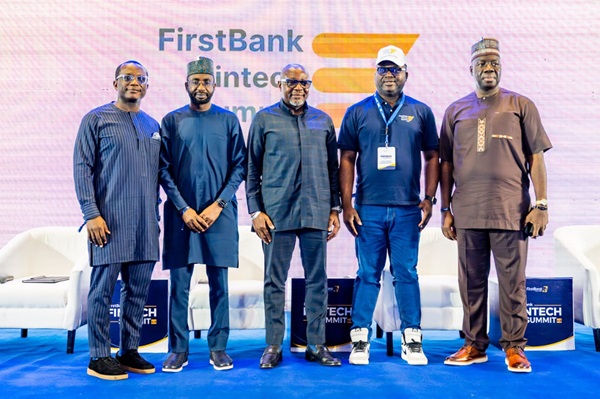
The director-general of the National Information Technology Development Agency (NITDA), Mallam Kashifu Abdullahi, has called for greater collaboration among key players in the Fintech ecosystem to boost financial literacy and promote financial inclusion for all citizens.
Abdullahi made this statement at the 6th edition of the annual FirstBank FinTech Summit during a session titled “Policy and Infrastructure: Navigating Financial Regulations for Fintech Innovations,” held in Lagos.
He emphasised that NITDA’s regulatory approach, based on a triple-helix model, focuses not only on setting standards but also on actively creating and supporting markets.
Outlining the objectives of the regulatory intelligence framework developed by the agency, Abdullahi highlighted its goals of creating market value, enabling innovation, protecting consumers and effectively delivering services. He noted that collaboration with the ecosystem is critical to achieving these objectives.
“To achieve this, we developed what we call a participatory framework or policy dialogue for any regulation. At the heart of everything we do is co-designing and co-creation,” he said.
Speaking about collaboration, Abdullahi credited it as instrumental in successfully implementing Nigeria’s cashless policy, which was achieved in partnership with the Central Bank of Nigeria (CBN).
“NITDA worked with CBN to develop the cashless policy, which gave birth to the fintech industry we are discussing today,” he explained. “This prompted banks to upgrade their infrastructure—both hardware and software—while fintech companies identified gaps and created solutions to bridge those gaps.”
He also revealed that NITDA is currently working with the Federal Inland Revenue Service and other stakeholders to develop guidelines for electronic invoicing, which will create new opportunities for fintech companies.
“As a regulator focused on facilitating financial inclusion, we need to strengthen unified regulations and policymaking. Policies developed without involving implementers are often difficult to enforce,” he stated.
Abdullahi further elaborated on NITDA’s efforts to bridge the digital divide, highlighting the launch of a National Digital Literacy Framework aimed at integrating digital skills into formal education.
He disclosed that NITDA collaborates with the Ministry of Education to incorporate digital literacy into school curricula and with the National Youth Service Corps (NYSC) to train over 17,000 youth corps members annually.
“These initiatives aim to provide basic digital literacy to millions, targeting artisans, market women, senior citizens and others in the informal sector,” he added.
Addressing concerns about Nigeria’s data sovereignty, Abdullahi stressed the importance of developing in-country cloud capabilities to enhance national security and empower local fintech firms. “Without operational sovereignty, we cannot fully control or secure our digital assets,” he noted, citing ongoing partnerships with hyperscale providers and local data centres to establish domestic cloud infrastructure.
Abdullahi also discussed the development of a robust cybersecurity architecture as a means to achieve financial inclusion. “We aim to create infrastructure, connect the unconnected and promote digital literacy to foster trust in digital platforms,” he said.
He urged fintech companies to leverage NITDA’s interventions and initiatives, which are designed to support underserved and unserved areas by enhancing their digital capacities and skills. Infusing financial literacy into these efforts, he noted, would significantly drive deeper financial inclusion across Nigeria.
“Nigeria has the infrastructure and with the right collaborations and continued focus on inclusive policies, we can make significant strides in bridging both the digital and financial divides,” Abdullahi concluded.
Other panelists who shared their insights during the session included managing director and CEO of NIBSS, Mr. Premier Oiwoh; CEO of the Lagos Lotteries and Gaming Authority, Mr. Bashir Are and chief information officer of FirstBank of Nigeria, Mr. Adewale Salami.


